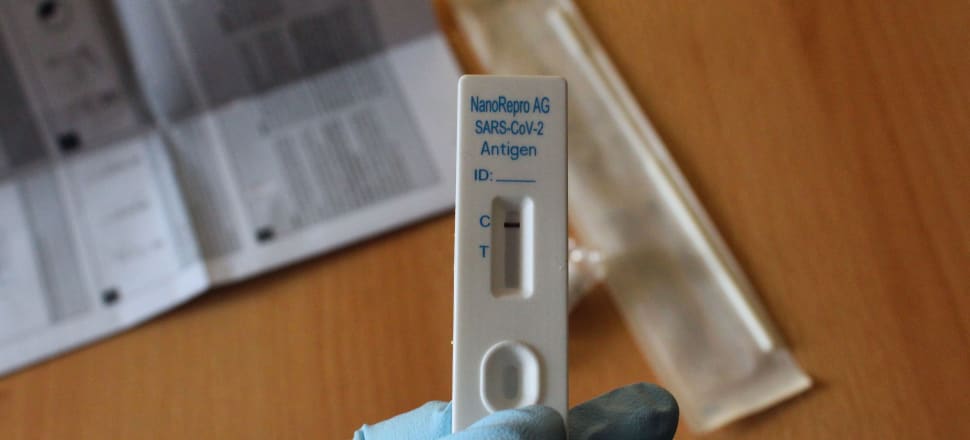
A Covid-19 prevalence survey would have revealed the true levels of infection in the community, with one expert saying their advice to the Government will suffer without it
More than 14 months after then-Director-General of Health Ashley Bloomfield first said the Ministry of Health would launch a survey of random Covid-19 testing, the plans have finally been scrapped.
The survey, plagued by multiple delays and a lack of transparency, was meant to determine the true levels of Covid-19 infection in the community. The daily reported case numbers represent only a fraction of the actual number of active infections, because many cases are asymptomatic and won't know to test and some others choose not to test or not to report a positive result.
A spokesperson for the Ministry of Health told Newsroom on Thursday that it had agreed "the COVID-19 prevalence surveys should not advance in their proposed current format. Aotearoa New Zealand has passed the emergency stage of its COVID-19 response, with the virus endemic in our communities.
"The results of any COVID-19-focused prevalence survey would be unlikely to meaningfully alter any current public health response as there are only two pandemic-related mandates still in place (the 7-day isolation period and mask use for visitors to healthcare facilities)."
One expert actively working to inform the public health response disagrees, however.
Dion O'Neale is a project lead at Covid-19 Modelling Aotearoa who is currently modelling the impact of changes to the isolation period on behalf of the ministry. A long-time advocate of a prevalence survey, he said it would improve the quality of the advice his group ultimately gives to the Government.
"There's an example of - it's not an emergency response but it informs the likely impact of a current decision that is facing Cabinet and [the ministry] at the moment. We could give much better advice about the impact of changing those things if we knew how many infections were out there and how many of them were being confirmed as cases."
A prevalence survey was first mooted in the early days of the first Omicron wave, when centralised PCR testing capacity fell short and people migrated to rapid tests for the first time. Bloomfield said in February 2022 that one would be in place after the peak of that wave, in March. In June, he said the survey would launch in July. In July, the ministry told Newsroom it would go live "in the coming weeks". In October, the ministry said it would come by the end of the year. In November, it said the survey would launch in 2023.
"COVID-19 infection prevalence and seroprevalence surveys are complex projects involving a number of agencies, stakeholders and external providers. The Ministry accepts it took longer than expected to reach this conclusion, given the challenges of a multi-stakeholder, complex project developed during the health reforms," the spokesperson said on Thurdsay.
"Prevalence surveys are expected to be a key tool in any future effective population and public health knowledge surveillance system. Any future survey design will benefit from lessons learned during the COVID-19 prevalence surveys project and, where appropriate, will leverage technologies and ways of working established during the pandemic."
O'Neale said a survey for winter illness could still be valuable, covering Covid-19, influenza, RSV and a range of other respiratory illnesses. It would also set up the infrastructure needed to launch a survey more quickly in a future emergency.
"Given that it's taken three years and they weren't able to get it up in that time, it does suggest that it's something they found really tricky to get organised. If it takes three years to get a survey going to inform an emergency response, maybe the best way to be prepared for when we are going to be in an emergency phase in the future would be to do something now - to run something now at a small scale," he said.
"It's kind of similar to the situation we had with contact tracing at the start of the pandemic. We had some idea about how we might need to do this thing, we started trying to do it and it turned out it wasn't working very well. There were a number of times where a review was done, including by the current health minister. I hope there's something done so that we are better prepared [to launch a prevalence survey] next time."
The survey was to come in two phases - an infection project which detected active Covid-19 prevalence and a serological one which determined how many people had been previously infected.
O'Neale said the sero-survey could still be useful for Covid-19 as well, though its efficacy wanes as time passes since the last wave.
"Knowing the number of people who have had past infections and how that's distributed through the community, it gives you an indication of the Long Covid-type effects that are going to come up," he said.
That could allow the health system to plan for post-acute Covid-19-related demand, as well as feeding into economic and workforce planning. In addition to the more commonly-known symptoms of Long Covid, like debilitating fatigue and brain fog, studies in recent months have shown people infected with Covid-19 are more likely to suffer from heart disease, diabetes and autoimmune disorders after their infection.
"Viruses are incredibly strange and often terrible and there's all sorts of post-viral symptoms that pop up. Some of them shortly after infection and some of them quite a long time after infection. For Covid, there is a lot we don't know."







